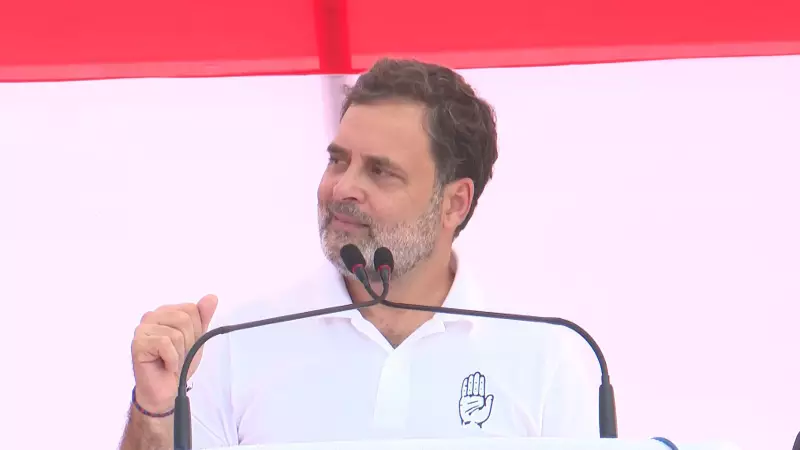
In a fiery political attack, Congress leader Rahul Gandhi has compared popular social media platforms to modern-day narcotics, claiming that short-form video content like Instagram Reels is creating a generation of addicted youth.
The sharp criticism came as a direct response to Prime Minister Narendra Modi's recent remarks about affordable data transforming India's digital landscape. Gandhi painted a starkly different picture, suggesting that instead of empowerment, cheap data has become a tool for digital intoxication.
The 'Digital Drug' Allegation
"Instagram Reels are the 21st-century equivalent of drugs and alcohol addictions," Gandhi declared, arguing that the government is actively pushing young Indians toward these addictive platforms through its policies.
The Congress leader's comments highlight growing concerns about the psychological impact of endless scrolling and short-form video consumption, particularly among younger demographics who form the bulk of India's internet users.
Political Battle Over Digital India
This confrontation represents the latest escalation in the ongoing political war over India's digital transformation. While the government celebrates increased internet penetration and affordable data as achievements, the opposition questions the quality and impact of this digital revolution.
Gandhi's remarks suggest a strategic pivot in political rhetoric, moving beyond traditional economic issues to address the social and psychological consequences of technology adoption.
Youth Mental Health Concerns
The criticism taps into genuine concerns among mental health professionals and educators about:
- Decreasing attention spans among young users
- Sleep disruption caused by late-night scrolling
- Comparison anxiety and self-esteem issues
- Reduced real-world social interactions
Experts have increasingly warned about the addictive design of social media platforms, though the direct comparison to substance abuse represents a significant escalation in political discourse.
Broader Implications
This controversy emerges as India continues to lead global charts in social media usage, with millions of young users spending hours daily on platforms featuring short-form video content.
The political exchange raises important questions about digital responsibility, platform regulation, and whether governments should play a more active role in addressing the potential harms of technology while celebrating its benefits.
As the debate intensifies, it remains to be seen whether this marks a temporary political exchange or the beginning of a more substantial discussion about digital wellness in Indian society.






